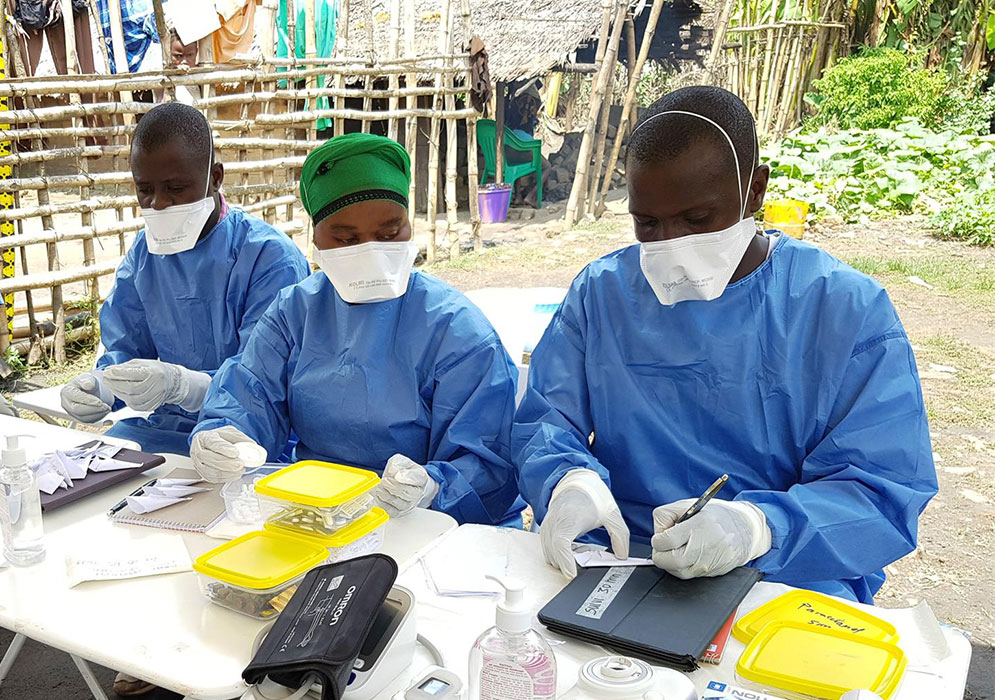
The current Ebola outbreak in the Democratic Republic of the Congo (DRC) risks spreading to Rwanda, Uganda, Ethiopia, and South Sudan, according to testimony by public health experts on Tuesday before the U.S. House Committee on Foreign Affairs.
The outbreak in the DRC began in August 2018 and is the second largest Ebola outbreak to date, with more than 2,020 cases and 1,354 deaths as of June 3, according to the World Health Organization (WHO).
“This is the first urban outbreak in the DRC occurring in densely populated areas that have seen decades of conflict and civil unrest,” said Dr. Robert Redfield, director of the Centers for Disease Control and Prevention (CDC). “This outbreak is not under control at this time.”
The epicenter of the crisis is North Kivu, a province that has faced decades of political conflict. The region is also home to three cities that are part of trade routes that extend beyond the DRC’s borders, a concern for public health workers worried that economic travel could lead to the spread of Ebola outside of the country.
“The scope of this biosecurity threat is changing and the risk of this virus leaping borders is very high,” said Tim Ziemer, acting assistant administrator at the United States Agency for International Development (USAID). “I’ve traveled extensively in my career in my three decades in the Navy and in the roles that I’ve had since, and this (recent) trip to the DRC was one of the most sobering trips I’ve ever taken.”
This is in part due to attacks on health care workers and facilities by the Congolese, many of whom view the outbreak as part of a government plot and that international health workers are intentionally infecting the local population with Ebola. In February, community members set fire to an Ebola treatment unit. The facility was restored, Ziemer said, but the evening he left the DRC, the security guard was killed in a recurring attack.
USAID is working with the new United Nations Emergency Ebola Response Coordinator to bolster security for non-militarized humanitarian approaches. They are also coordinating with the CDC to implement operational improvements in public health response, including a forward-leaning vaccine strategy.
The CDC is cooperating with WHO to support vaccination. More than 130,000 people in the DRC and surrounding countries have received Merck’s experimental Ebola vaccine, about 20 percent of the number of people responders would like to reach. However, the CDC predicts the DRC will exhaust the current supply of the vaccine before Merck can produce more.
The CDC’s efforts also include case recognition and contact tracing, infection control in the health care setting, safe burials to inhibit infection, laboratory testing, border health, and real-time data analysis to inform the response.
“We’ve trained over 12,000 public health professionals, now in 70 countries. More than 200 of these CDC-trained professionals are currently in the DRC,” Redfield said.
However, government policy may stifle CDC and other humanitarian efforts. The Trafficking Victims Protection Act lists the DRC as a “tier three” country in the Trafficking in Persons Report. The Trump administration’s strict interpretation of the Act has meant that non-humanitarian assistance has been withheld from the DRC. U.S. officials aren’t certain whether the administration will issue a waiver to permit more assistance to the country.
“This administration has an obligation and an opportunity to stop the deadly outbreak,” said U.S. Rep. Karen Bass (D-CA).
Bass on June 4 introduced the Ebola Eradication Act of 2019, H.R. 3085, to authorize USAID to assist with the Ebola efforts in the DRC. The same-named Senate bill, S. 1340, was sponsored by U.S. Sen. Robert Menendez (D-NJ) on May 7.
“The most effective way to protect America from emerging threats is to stop the disease at its source before it reaches our borders,” Redfield said.




